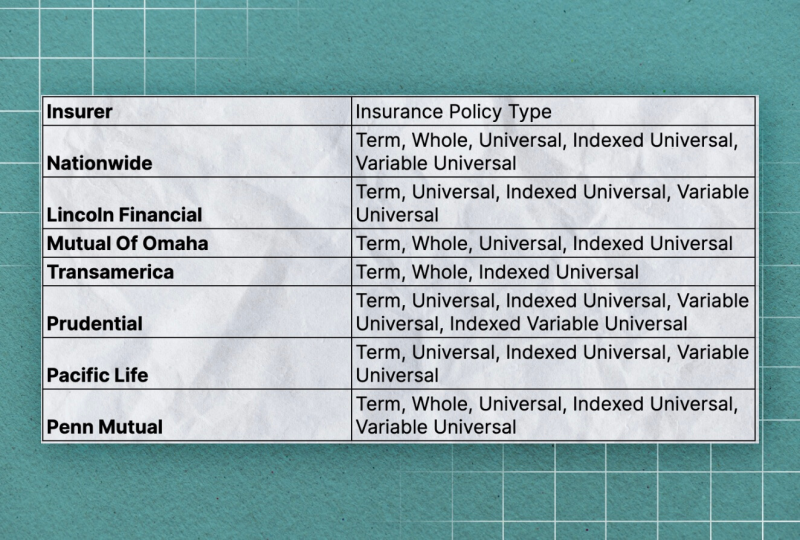All Categories
Featured
Table of Contents
Do they compare the IUL to something like the Lead Total Stock Market Fund Admiral Shares with no lots, a cost ratio (EMERGENCY ROOM) of 5 basis points, a turn over proportion of 4.3%, and a remarkable tax-efficient record of distributions? No, they compare it to some dreadful actively handled fund with an 8% load, a 2% EMERGENCY ROOM, an 80% turnover proportion, and a terrible document of temporary capital gain distributions.
Mutual funds commonly make yearly taxable distributions to fund proprietors, also when the value of their fund has gone down in worth. Mutual funds not just require earnings coverage (and the resulting yearly taxation) when the common fund is rising in worth, however can also impose revenue tax obligations in a year when the fund has gone down in worth.
You can tax-manage the fund, collecting losses and gains in order to minimize taxable distributions to the capitalists, however that isn't somehow going to change the reported return of the fund. The possession of mutual funds might require the shared fund owner to pay estimated taxes (allianz indexed universal life).

IULs are easy to position so that, at the proprietor's death, the beneficiary is not subject to either income or estate tax obligations. The exact same tax reduction strategies do not function nearly as well with common funds. There are numerous, typically pricey, tax obligation catches related to the moment trading of shared fund shares, catches that do not put on indexed life Insurance policy.
Possibilities aren't really high that you're going to be subject to the AMT due to your shared fund circulations if you aren't without them. The rest of this one is half-truths at ideal. For circumstances, while it holds true that there is no revenue tax because of your beneficiaries when they inherit the profits of your IUL policy, it is also real that there is no income tax as a result of your beneficiaries when they acquire a mutual fund in a taxed account from you.
Index Insurance Definition
There are better methods to prevent estate tax obligation problems than acquiring investments with reduced returns. Shared funds may create earnings tax of Social Security benefits.

The development within the IUL is tax-deferred and may be taken as tax obligation complimentary income using fundings. The plan owner (vs. the mutual fund manager) is in control of his or her reportable earnings, thus allowing them to decrease and even get rid of the tax of their Social Safety and security advantages. This is great.
Below's one more minimal issue. It holds true if you acquire a common fund for state $10 per share just before the distribution day, and it distributes a $0.50 distribution, you are then going to owe taxes (possibly 7-10 cents per share) regardless of the reality that you have not yet had any type of gains.
In the end, it's really regarding the after-tax return, not exactly how much you pay in tax obligations. You're likewise possibly going to have even more cash after paying those taxes. The record-keeping needs for having common funds are considerably extra complicated.
With an IUL, one's documents are kept by the insurance coverage company, duplicates of yearly declarations are mailed to the owner, and circulations (if any kind of) are totaled and reported at year end. This set is also sort of silly. Naturally you need to maintain your tax obligation documents in case of an audit.
Is Indexed Universal Life A Good Investment
Barely a factor to get life insurance. Mutual funds are frequently component of a decedent's probated estate.
Furthermore, they undergo the hold-ups and costs of probate. The proceeds of the IUL plan, on the other hand, is constantly a non-probate circulation that passes beyond probate directly to one's named beneficiaries, and is for that reason exempt to one's posthumous financial institutions, undesirable public disclosure, or similar delays and prices.
We covered this one under # 7, however just to summarize, if you have a taxed shared fund account, you have to place it in a revocable count on (or also simpler, use the Transfer on Death classification) in order to stay clear of probate. Medicaid disqualification and life time earnings. An IUL can offer their proprietors with a stream of revenue for their entire life time, regardless of for how long they live.

This is helpful when arranging one's affairs, and converting properties to revenue prior to a retirement home arrest. Shared funds can not be transformed in a similar manner, and are virtually always taken into consideration countable Medicaid properties. This is one more foolish one supporting that bad people (you recognize, the ones who require Medicaid, a federal government program for the inadequate, to pay for their assisted living facility) must utilize IUL rather than common funds.
No Lapse Universal Life
And life insurance coverage looks awful when contrasted relatively against a pension. Second, people who have cash to get IUL above and beyond their pension are going to have to be awful at managing money in order to ever before get Medicaid to pay for their nursing home costs.
Persistent and incurable disease rider. All plans will certainly permit an owner's very easy accessibility to cash money from their policy, frequently waiving any abandonment charges when such people suffer a significant illness, require at-home care, or become restricted to a nursing home. Mutual funds do not supply a comparable waiver when contingent deferred sales charges still put on a common fund account whose owner requires to market some shares to fund the prices of such a stay.
Iul Retirement
Yet you get to pay more for that benefit (cyclist) with an insurance coverage. What a lot! Indexed global life insurance policy provides fatality benefits to the beneficiaries of the IUL owners, and neither the proprietor neither the recipient can ever shed money because of a down market. Mutual funds give no such assurances or survivor benefit of any kind of kind.
Now, ask on your own, do you actually require or desire a death advantage? I certainly do not require one after I get to monetary independence. Do I want one? I expect if it were cheap sufficient. Of program, it isn't cheap. On standard, a buyer of life insurance policy spends for the real expense of the life insurance advantage, plus the costs of the policy, plus the revenues of the insurer.
Universal Life Insurance Interest Rates
I'm not entirely sure why Mr. Morais included the whole "you can't shed money" again right here as it was covered quite well in # 1. He just wished to repeat the most effective marketing factor for these points I mean. Once again, you don't shed nominal bucks, yet you can lose real dollars, in addition to face severe chance expense due to reduced returns.

An indexed global life insurance policy plan owner may exchange their policy for a totally different policy without causing earnings taxes. A mutual fund proprietor can not move funds from one shared fund company to an additional without marketing his shares at the former (hence activating a taxable event), and redeeming brand-new shares at the latter, frequently based on sales charges at both.
While it holds true that you can trade one insurance coverage for another, the reason that people do this is that the first one is such a horrible plan that even after buying a brand-new one and experiencing the very early, negative return years, you'll still come out in advance. If they were marketed the ideal policy the initial time, they shouldn't have any type of wish to ever before exchange it and undergo the very early, unfavorable return years once more.
Latest Posts
What Is Universal Life Insurance With Living Benefits
Guaranteed Universal Life Insurance Rates
Cheap Universal Life Insurance